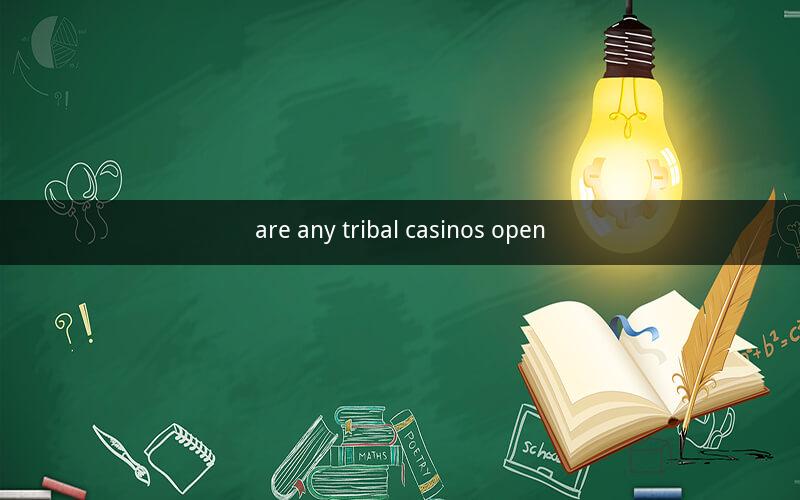
Table of Contents
1. Introduction to Tribal Casinos
2. The Legal Framework of Tribal Casinos
3. The Economic Impact of Tribal Casinos
4. The Social and Cultural Significance of Tribal Casinos
5. Types of Games Offered in Tribal Casinos
6. The Role of Tribal Casinos in Local Communities
7. Challenges Faced by Tribal Casinos
8. The Future of Tribal Casinos
9. Case Studies: Successful and Controversial Tribal Casinos
10. Conclusion
---
1. Introduction to Tribal Casinos
Tribal casinos, also known as Native American casinos, are gaming establishments operated by Native American tribes on their sovereign lands. These casinos offer a variety of games, including slots, poker, blackjack, and roulette, similar to commercial casinos. However, they operate under different regulations and are subject to unique legal frameworks.
2. The Legal Framework of Tribal Casinos
The legal foundation for tribal casinos is rooted in the Indian Gaming Regulatory Act (IGRA) of 1988. This act allows tribes to offer certain forms of gambling on their reservations, provided they have entered into a compact with the state. The IGRA has been a subject of debate and has led to various legal challenges over the years.
3. The Economic Impact of Tribal Casinos
Tribal casinos have had a significant economic impact on Native American communities. They provide employment opportunities, generate revenue for tribes, and contribute to local economies. In many cases, tribal casinos have become the largest employer in their respective areas.
4. The Social and Cultural Significance of Tribal Casinos
Beyond the economic benefits, tribal casinos also hold cultural and social importance. They help preserve Native American heritage, provide a sense of community, and offer a platform for cultural expression. Many tribes use casino profits to fund educational programs, health services, and other community initiatives.
5. Types of Games Offered in Tribal Casinos
Tribal casinos offer a wide range of games to cater to different interests. Slots are among the most popular, with a variety of themes and denominations available. Table games like poker, blackjack, and roulette are also common, along with bingo and other lottery-style games.
6. The Role of Tribal Casinos in Local Communities
Tribal casinos often play a crucial role in local communities. They provide jobs for residents, attract tourists, and contribute to local businesses. Additionally, they can help improve infrastructure and public services in nearby areas.
7. Challenges Faced by Tribal Casinos
Despite their economic and cultural benefits, tribal casinos face several challenges. These include competition from commercial casinos, legal disputes, and the need to balance commercial interests with cultural values. Additionally, some communities have expressed concerns about the potential negative social impacts of gambling.
8. The Future of Tribal Casinos
The future of tribal casinos is uncertain. As the gaming industry continues to evolve, tribes must adapt to new challenges and opportunities. This may involve expanding their offerings, entering into new compacts, or addressing the concerns of local communities.
9. Case Studies: Successful and Controversial Tribal Casinos
Several tribal casinos have achieved notable success, while others have faced controversy. Case studies of these casinos can provide valuable insights into the challenges and opportunities faced by tribal gaming operations.
10. Conclusion
Tribal casinos have become an integral part of the gaming industry and Native American communities. While they offer significant economic and cultural benefits, they also face unique challenges. As the industry continues to evolve, it will be important for tribes to navigate these challenges and find sustainable solutions.
---
Questions and Answers
1. Q: What is the Indian Gaming Regulatory Act (IGRA)?
A: The IGRA is a federal law that allows tribes to offer certain forms of gambling on their reservations, provided they have entered into a compact with the state.
2. Q: How do tribal casinos contribute to local economies?
A: Tribal casinos provide employment opportunities, generate revenue for tribes, and contribute to local businesses, improving infrastructure and public services.
3. Q: What types of games are offered in tribal casinos?
A: Tribal casinos offer a variety of games, including slots, poker, blackjack, roulette, bingo, and other lottery-style games.
4. Q: How do tribal casinos preserve Native American heritage?
A: Tribal casinos often fund educational programs, health services, and other community initiatives that promote Native American culture and heritage.
5. Q: What are the challenges faced by tribal casinos?
A: Challenges include competition from commercial casinos, legal disputes, and the need to balance commercial interests with cultural values.
6. Q: How do tribal casinos impact local communities?
A: They provide jobs, attract tourists, and contribute to local businesses, improving infrastructure and public services.
7. Q: Can tribal casinos operate without entering into compacts with the state?
A: No, tribal casinos must enter into compacts with the state to offer certain forms of gambling under the IGRA.
8. Q: What is the role of tribal casinos in Native American communities?
A: They provide economic opportunities, cultural and social benefits, and a platform for community expression.
9. Q: How do tribal casinos compare to commercial casinos?
A: While both offer gaming, tribal casinos operate under different regulations and are subject to unique legal frameworks.
10. Q: What is the future of tribal casinos?
A: The future of tribal casinos is uncertain, but they must adapt to new challenges and opportunities to remain sustainable.